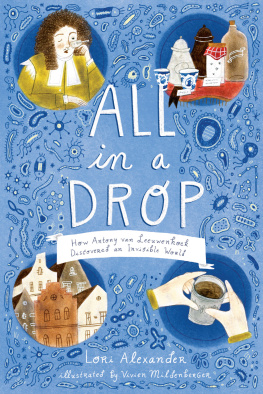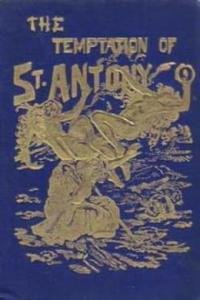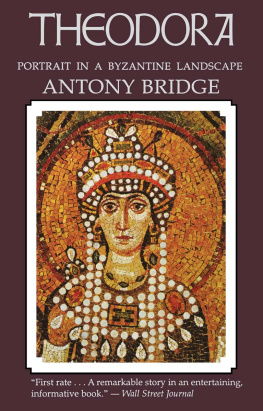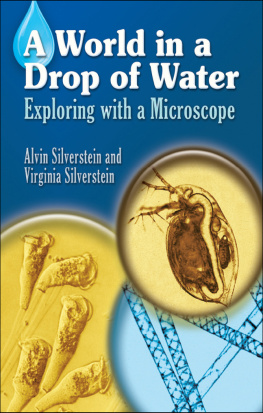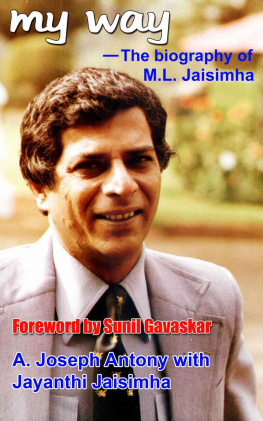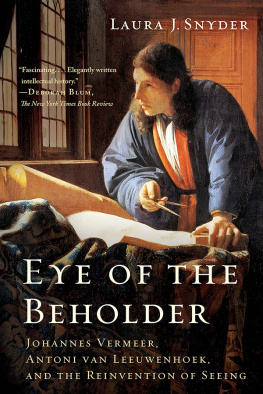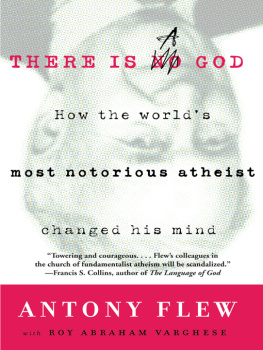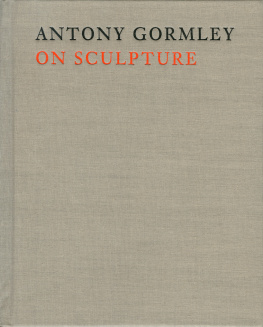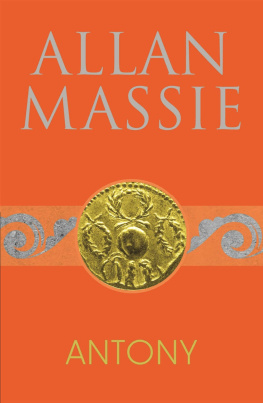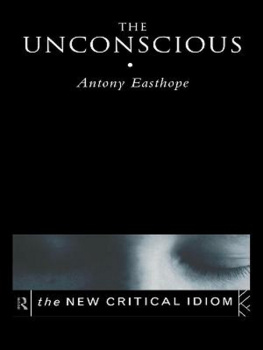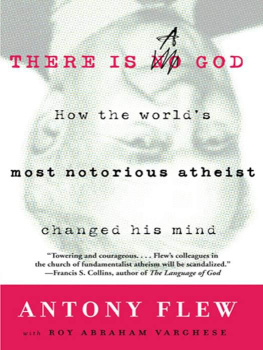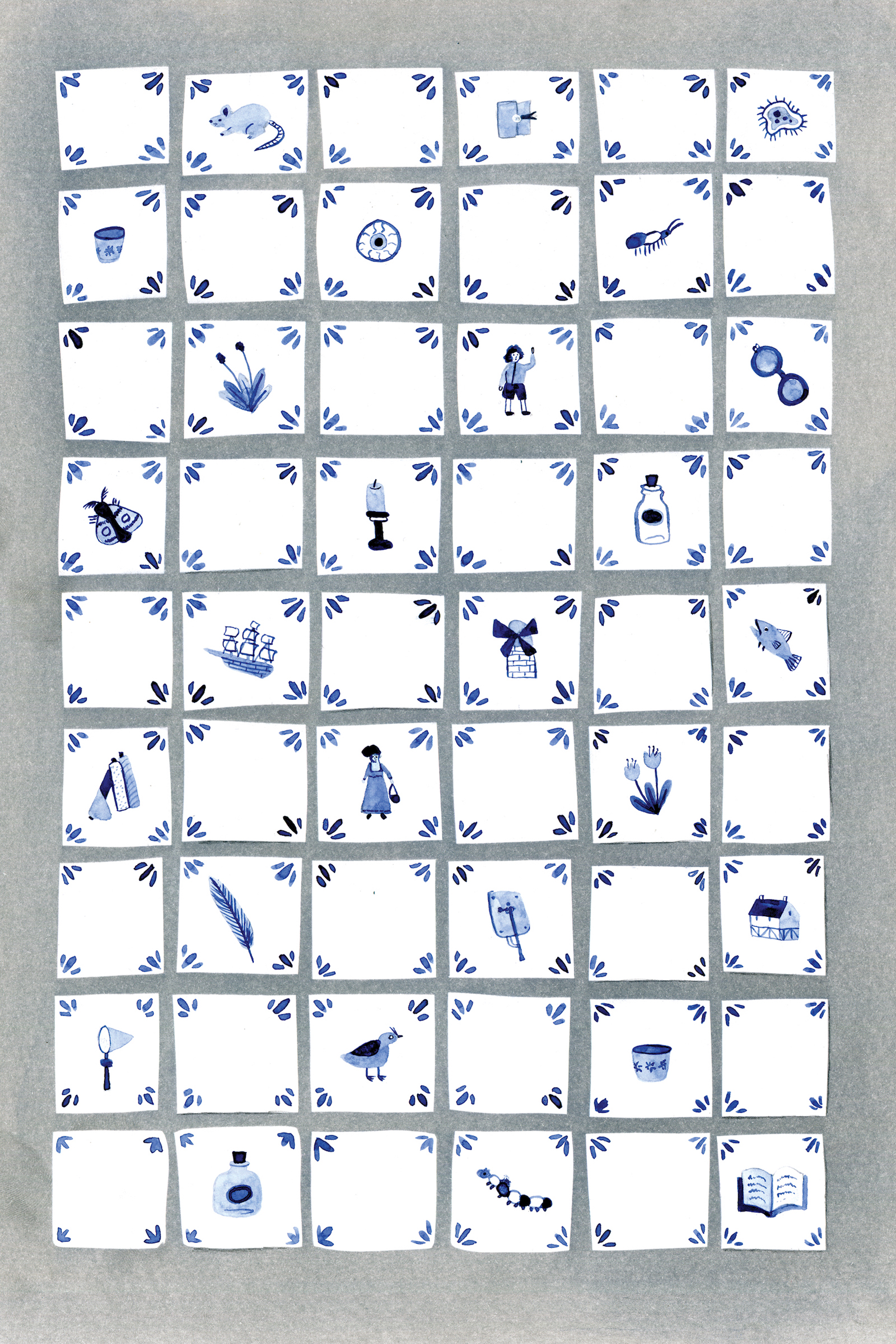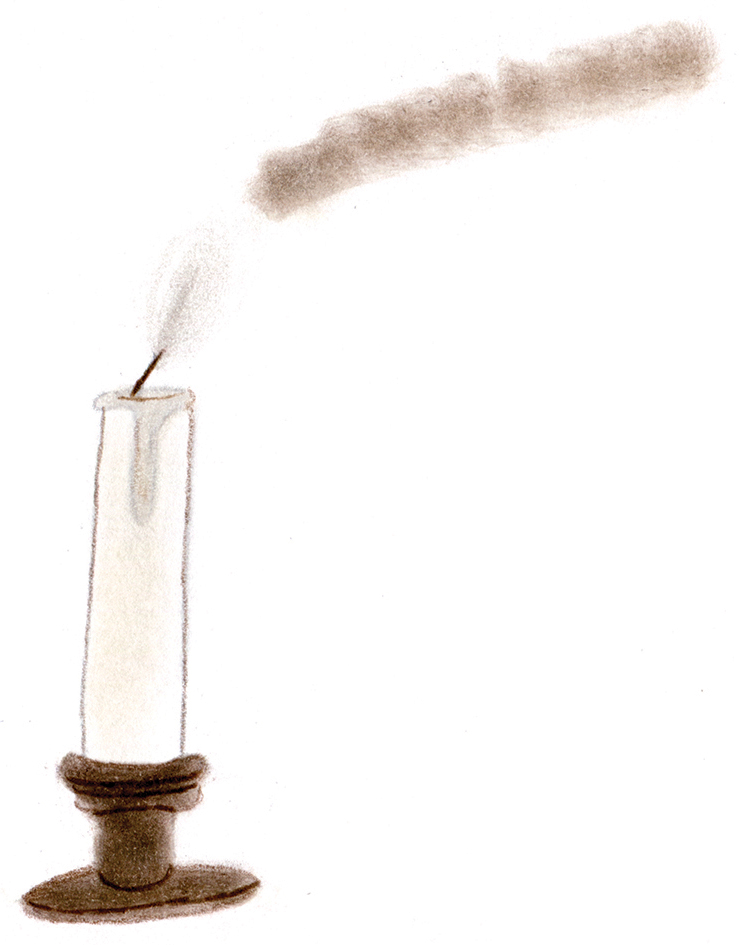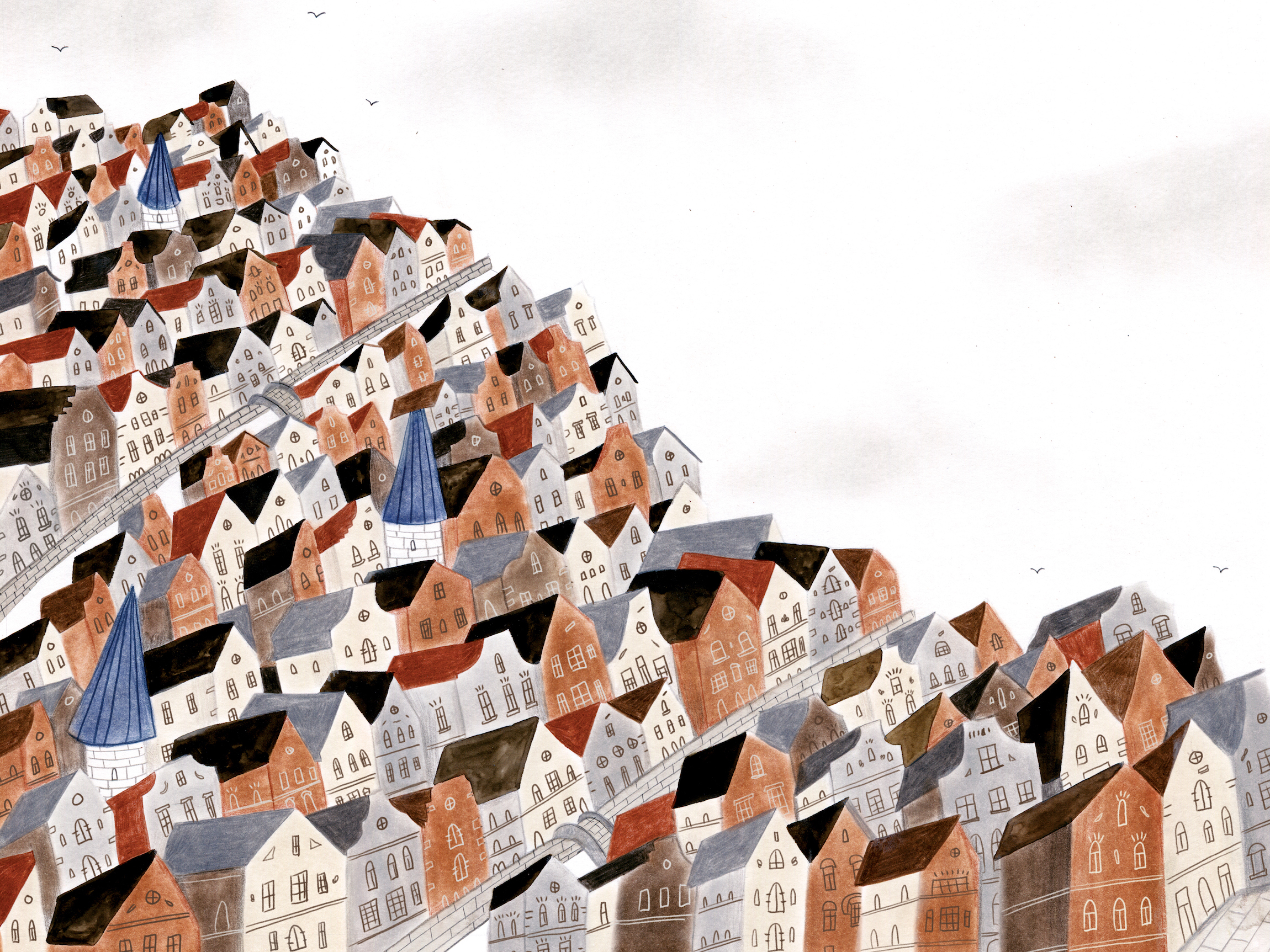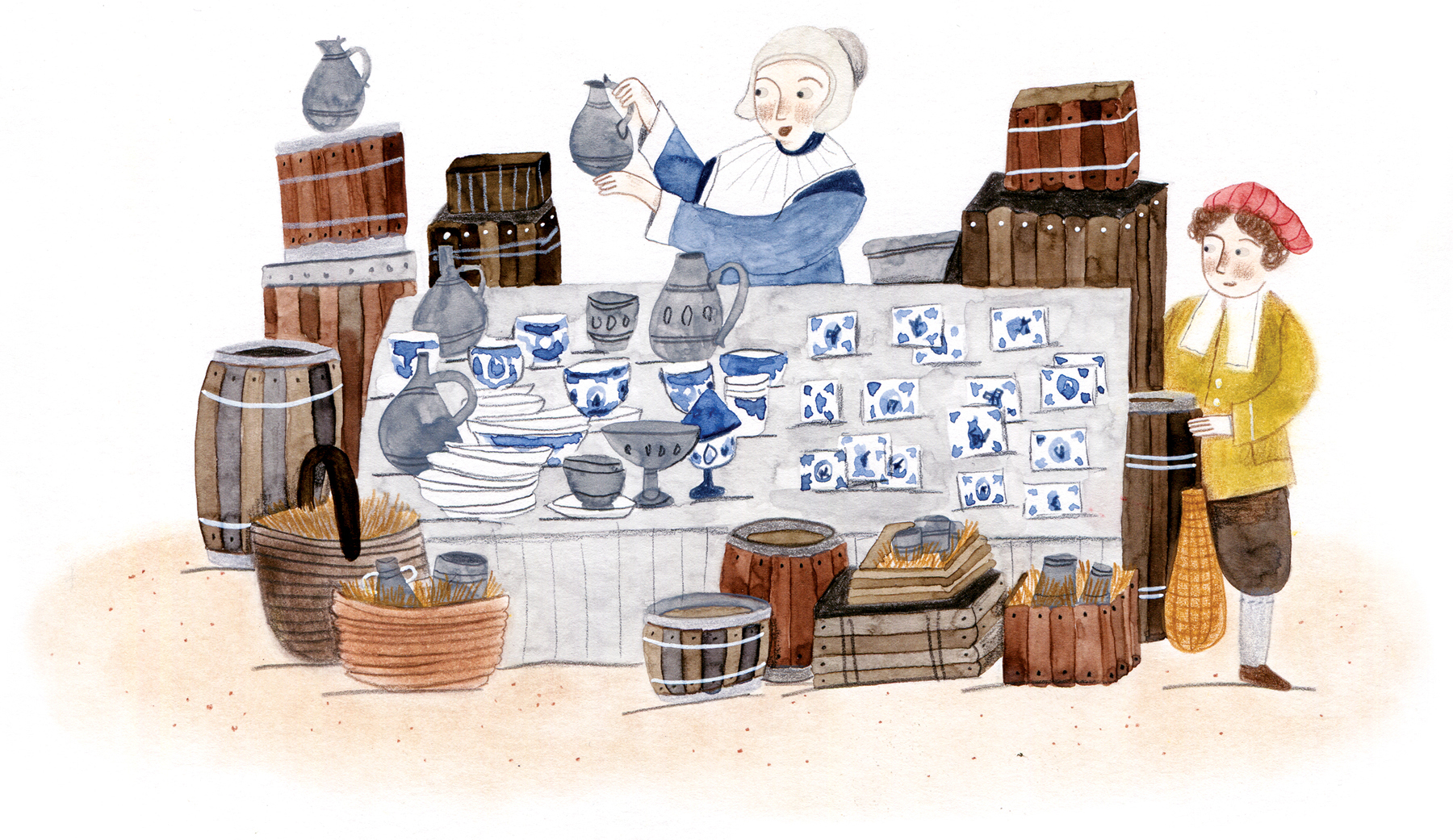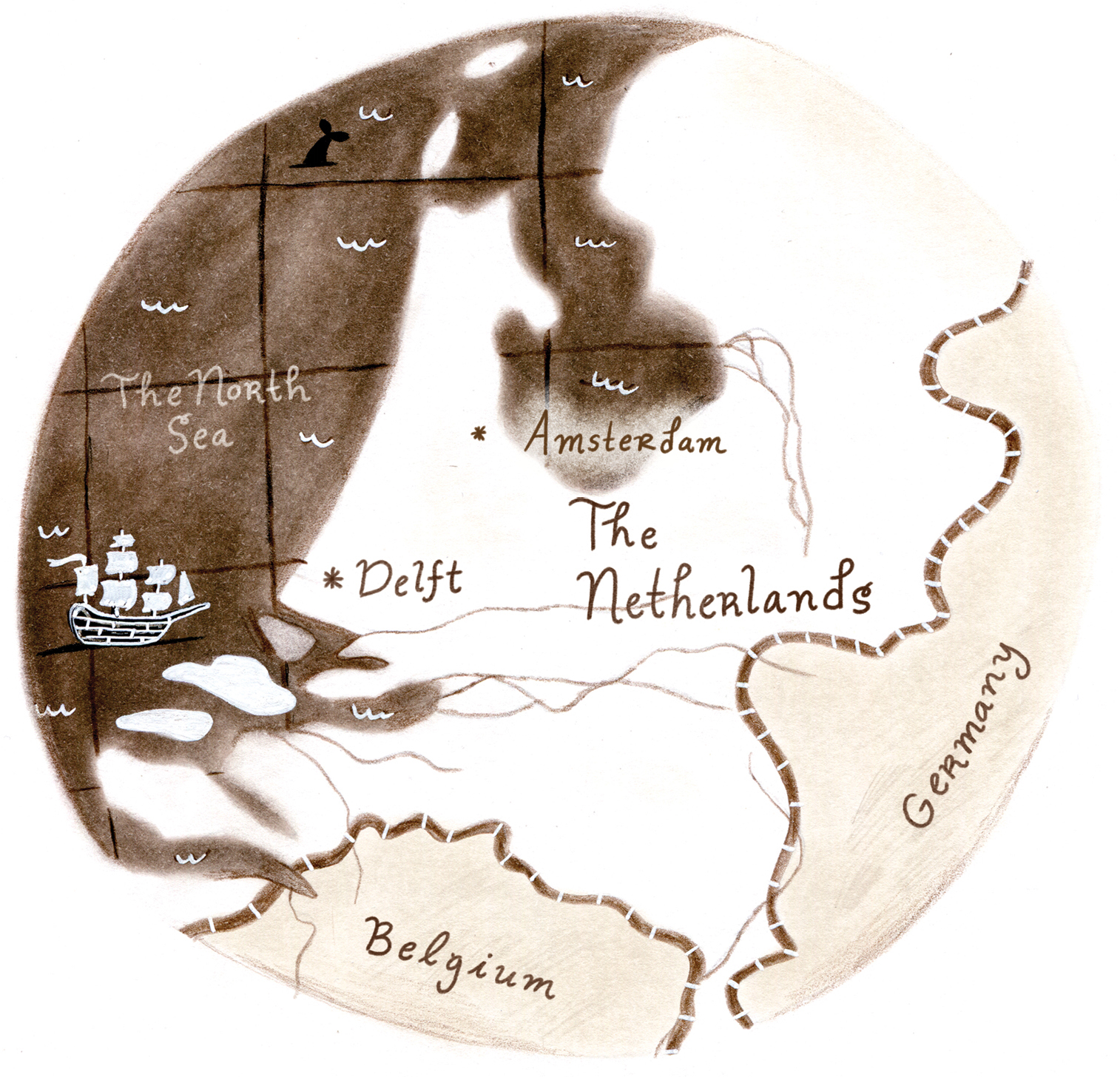To Nelson Alexander, who sees things not only for what they are but for what they might someday beL.A.
To my dad, who taught me that the wonders of this world extend far beyond what the eye can seeV.M.
Special thanks to Douglas Anderson, MFA, professor at Medaille College in Buffalo, New York, guest researcher at the Huygens Institute for Dutch History in Amsterdam, and creator of the Lens on Leeuwenhoek website, for reviewing this manuscript and graciously answering my many questions. Your helpful suggestions and careful attention to the smallest detail are immensely appreciated. And to my editor, Ann Rider, who saw potential from the start.L.A.
Text copyright 2019 by Lori Alexander
Illustrations copyright 2019 by Vivien Mildenberger
All rights reserved. For information about permission to reproduce selections from this book, write to or to Permissions, Houghton Mifflin Harcourt Publishing Company, 3 Park Avenue, 19th Floor, New York, New York 10016.
hmhbooks.com
The illustrations in this book were created using pastel, colored pencil and watercolor.
Cover design by Andrea Miller
Library of Congress Cataloging-in-Publication Data
Names: Alexander, Lori, author. | Mildenberger, Vivien, illustrator.
Title: All in a drop : how Antony van Leeuwenhoek discovered an invisible world / Lori Alexander ; [illustrator, Vivien Mildenberger].
Description: Boston ; New York : Houghton Mifflin Harcourt, [2018] | Audience: Ages 710. | Audience: Grades 4 to 6.
Identifiers: LCCN 2018051351 (print) | LCCN 2018055849 (ebook) | ISBN 9780358036197 (ebook) | ISBN 9781328884206 (hardcover)
Subjects: LCSH: Leeuwenhoek, Antoni van, 16321723Juvenile literature. | MicrobiologistsNetherlandsBiographyJuvenile literature. | BiologistsNetherlandsBiographyJuvenile literature. | MicroscopesHistoryJuvenile literature. | MicrobiologyHistoryJuvenile literature.
Classification: LCC QH31.L55 (ebook) | LCC QH31.L55 A44 2018 (print) | DDC 579.092 [B] --dc23
LC record available at https://lccn.loc.gov/2018051351
ISBN 978-1-328-88420-6
v1.0719
Introduction
Just inside the window, in a bright patch of sunlight, sits a curious man. He lifts an oddly shaped metal bar to his eye. He squints through a tiny hole and doesnt move a muscle. What could he possibly see with a contraption like that?
His name is Antony van Leeuwenhoek (an-TONE-ee van LAY-ven-hook). He has never taken a science class. But he is about to make a discovery that will change the world.
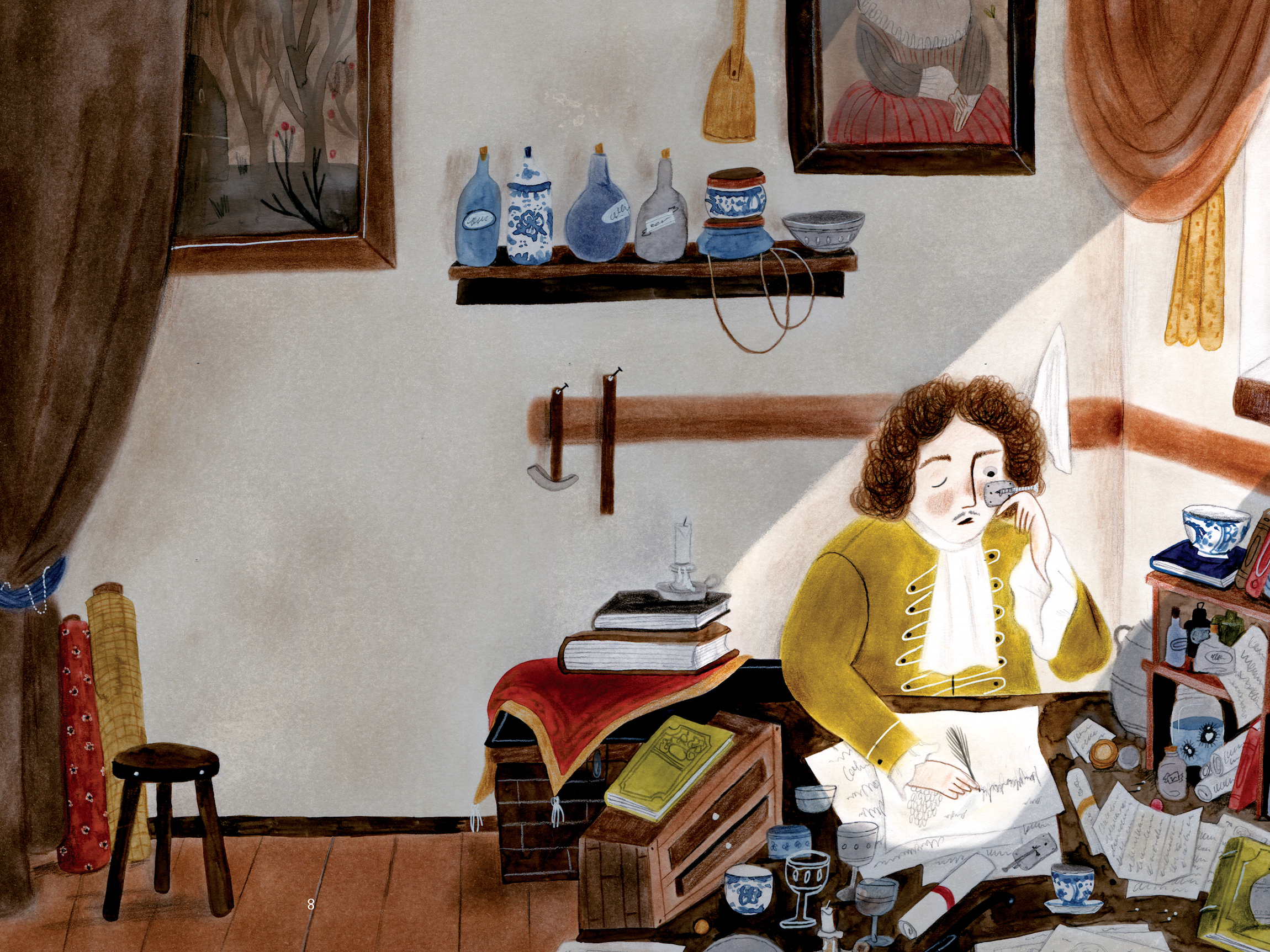
At such perfection in this tiny creature I did greatly marvel.
Chapter One:
A Golden Age
In a booming city laced with waterways and bustling with merchants who bellow, Fresh fish! Furniture! Porcelain tiles! Tapestries! lives a young boy named Antony.
From the trees that line the canals in his town of Delft, Netherlands, Antony plucks a fistful of leaves. He feeds the tender greens to his pet silkworms. They munch and munch until the leaves disappear. Antony watches closely. Do the silkworms have tiny teeth? He watches one spin a cocoon. Where do those silky threads come from? There is so much his eyes cannot see. But now is not a time for watching and wondering. His father is calling.
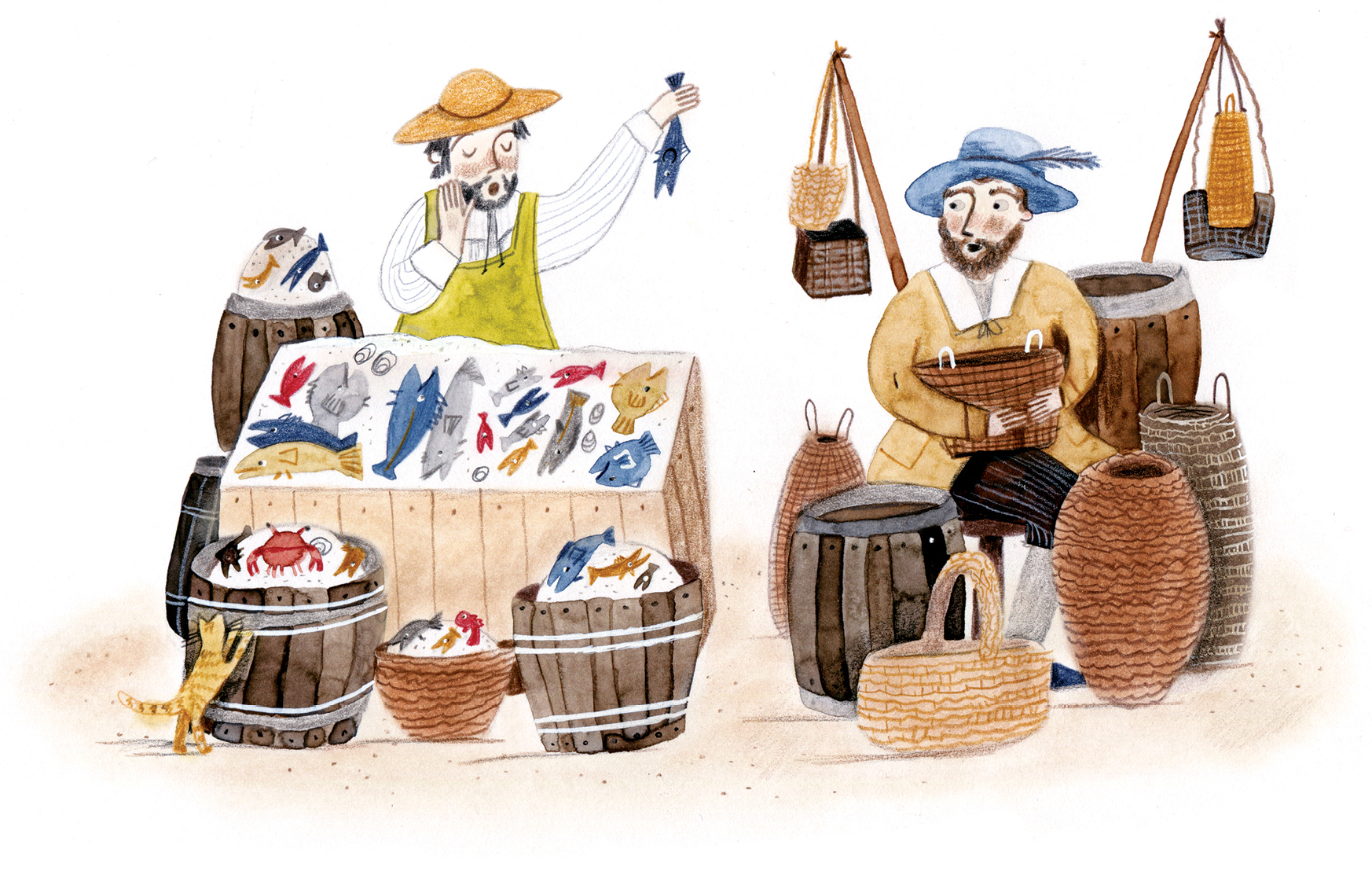
Antonys father is a basket maker. The sturdy wicker baskets he sells are used to pack and protect dishes and other fragile exports that will leave Delft on nearby cargo ships. The large vessels travel both east and west to faraway ports in Africa, India, Japan, the Caribbean islands, and North America. They carry many items for sale and trade: spices, sugar, silks, coffee, tea, silver, ivory. Its the late 1630s, and the Netherlands owns the largest fleet of ships in the entire world. Indeed, it is a profitable time to be a merchant. So profitable, the Dutch (the people of the Netherlands) will later give this period a nickname: the Golden Age.
Antonys mother knows of something golden as well. Hers is in the form of a crisp, tasty beverage. Her father, Antonys grandfather, was a respected beer brewer. Mugs of ale keep the townspeople happy and healthy. When Delfts water supply is polluted by local industries, everyone, even the children, drinks the low-alcohol beer. Maybe Antony will learn to make bottles of brew and continue the family tradition. One thing is certain: he will learn a trade of some sort, just like his parents.
Antony sells his pet worms to a silk spinner in the market square. Their cocoons will be used to make delicate threads for yarn. The sale earns Antony a small profit. Already, he has a head for business.
Chapter Two:
Big Changes
Antony is still young when his father dies unexpectedly. Now his mother must care for Antony and his four sisters all by herself. Before long, she remarries. But her new husbands home is small and cramped. His mother has a solution: eight-year-old Antony is sent off to a boarding school, a place where he will live and study, in a neighboring city about fifteen miles from Delft.
Antonys schooling is basic. He learns some math. He learns to read and write in his countrys language: Dutch. He does not study science or learn other languages, like English or Latin. He doesnt need them. He is not expected to become a philosopher or a great thinker. He will grow up to be an ordinary tradesperson, like his parents.
When he is fourteen years old and finished with his schooling, Antony moves in with his uncle, who is a lawyer and lives in the city of Benthuizen, about nine miles from Delft. His uncle makes a promise to Antonys mother: he will help Antony learn a trade. But Antony shows little interest in learning about the law and his uncles government job. Still, his uncle makes good on the promise. Antony is sent to Amsterdam for training in a linen merchants shop.
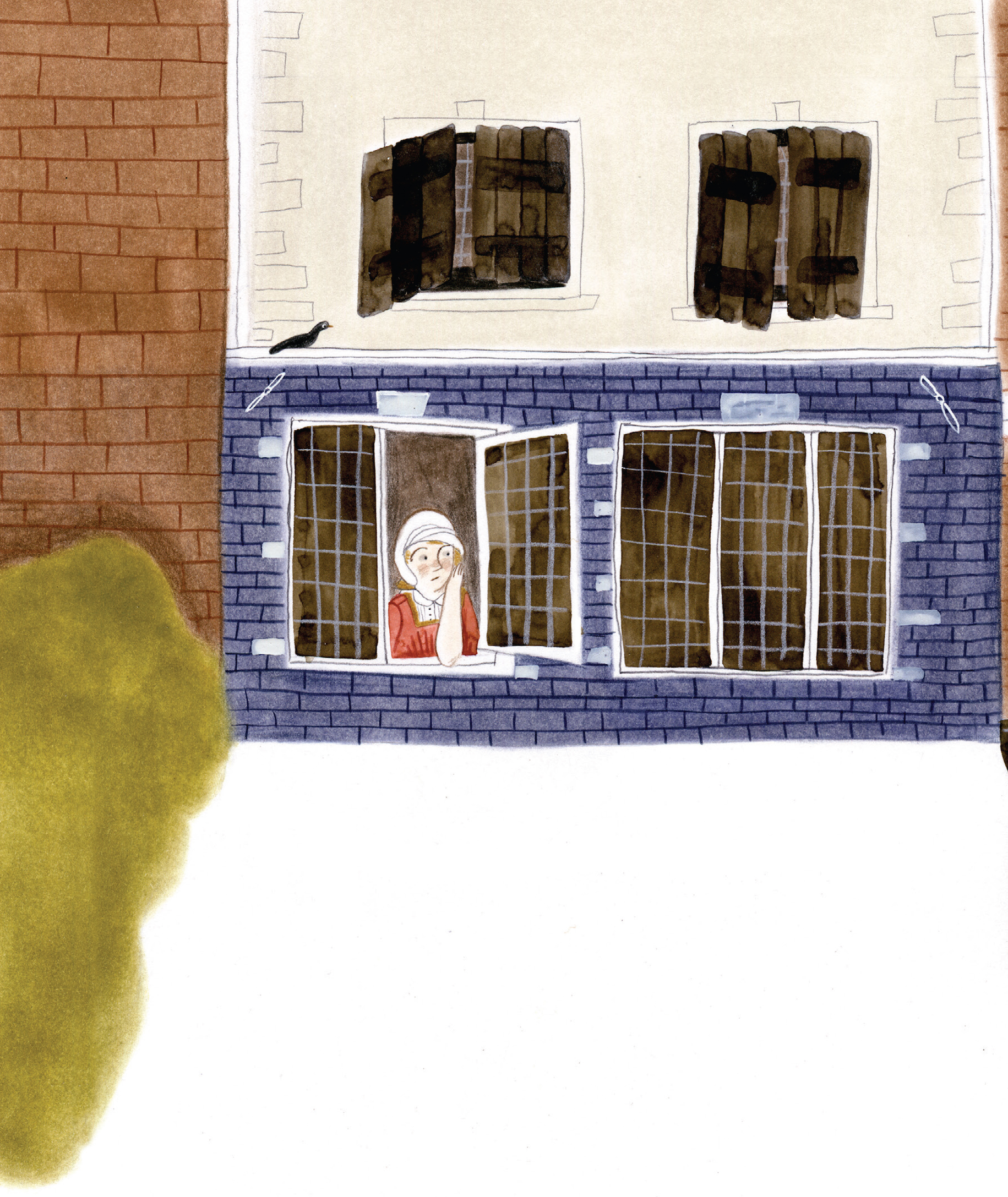
Antony is impressed by the city. Amsterdam is huge! There are 100,000 more people here than in his hometown. Immigrants come from France, Spain, and Portugal. In their countries, they were told which religion to practice. But in the Netherlands people have more freedoms when it comes to religion and government. Anyone who works hard is welcome here. Antony watches the city construction: buildings grow taller, canals grow wider, houses spring up everywhere. He visits the bookstores, apothecaries, boot shops, bakeries, and stores filled with maps and nautical gadgets. He listens to the traveling musicians. Amid the commotion of the bustling city, Antony begins his training.

